Utah Legislature’s Solution looking for a Problem. Mirror Mirror, Snow White, Johnny Lingo, Grimm fairy tales.
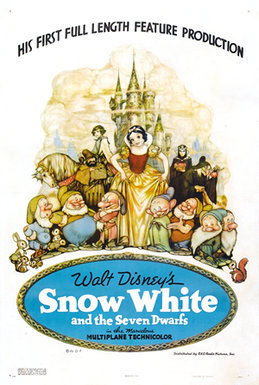
We are watching in Salt Lake City, life imitating art. The art is the fairy tale Snow White. The brothers Grimm story of a beautiful maiden living in a forest cottage with seven dwarfs, working daily in their diamond and jewel mine. Snow White fled to the forest because a huntsman warned her to flee. The huntsman was ordered to kill her by a wicked Queen. Without mercy, without trial, without counsel. We assume there were laws against such murder, hence the need for secrecy of Snow White being alone in the forest, taken there by the huntsman. But continuing. The wicked Queen was motivated by her vanity and an enchanted living mirror. The enchanted living mirror could see throughout the realm, and could speak and answer questions, and always told the truth. For some time, perhaps years, the wicked Queen daily asked ‘Mirror, mirror on the wall, who’s the fairest of them all.’ And the enchanted mirror would reply, ‘You are Queen’ or some such. But as Snow White grew to maidenhood, it was inevitable one day that the queen asked ‘Mirror, mirror’ and the mirror replied, something to the effect, ‘You know how you are lovely, but now, well, not so much, ouch, couldn’t you rephrase your question, and you aren’t going to reclaim that honor any time soon, because,’ and so forth. Vanity, suspense, beauty, innocence, all elements of a great story. Fairy tale and all.
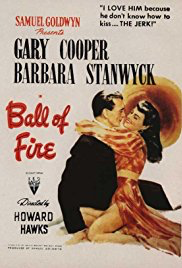
This fairy tale delicate maid with seven guardians plot was picked up by the movies – Disney’s 1937 Snow White and the Seven Dwarfs and Howard Hawks’ 1941 Ball of Fire with Gary Cooper and Barbara Stanwyck, without the mirror. The mirror was renewed in the 2005 The Brothers Grimm with Matt Damon and Heath Ledger.
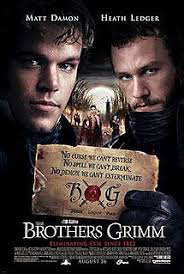
The mirror was revived in the movie Johnny Lingo, in 1969 and The Legend of Johnny Lingo in 2003, have the bride, being called as ‘Mahana you ugly’ by her father. Nevertheless, Mahana is rescued by her prince, Johnny Lingo, the best trader in the islands, who presents her with a fine gold inlayed mirror to see her beauty. ‘Mahana you ugly’ was said as a single word for her name. Johnny Lingo is a motivational short film produced by Brigham Young University. ‘Mahana you ugly’ is ‘lookism’.
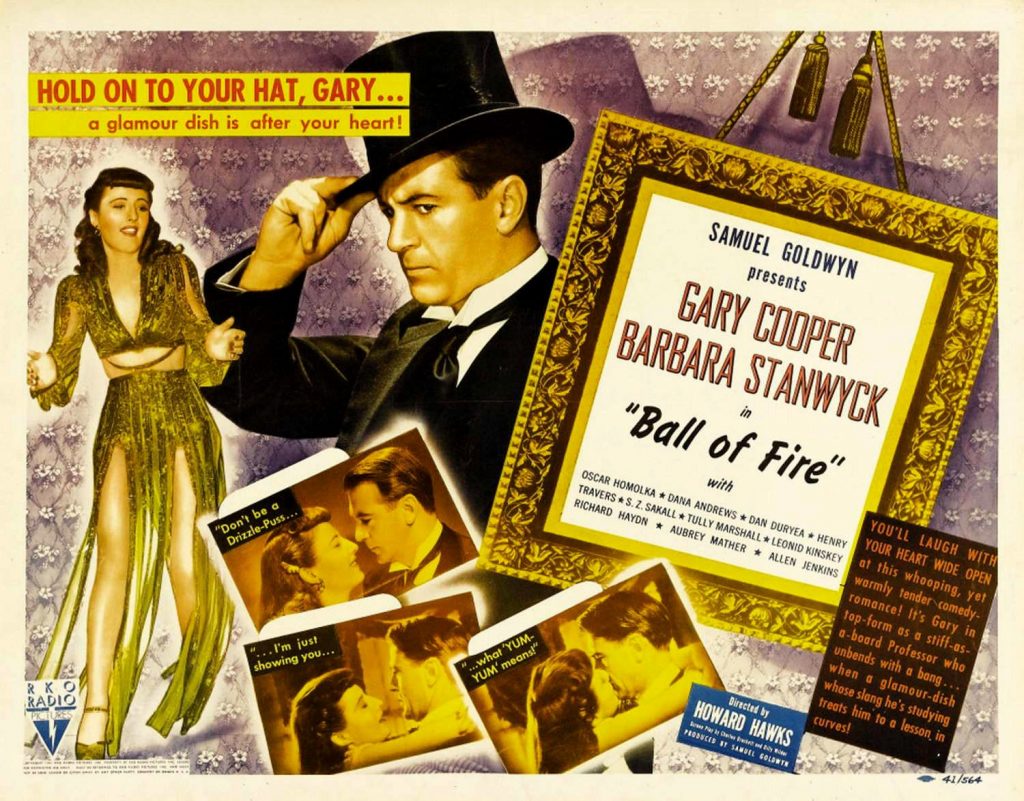
With that perspective, a late fall of 2018 vicious beating hit the headlines in Salt Lake City, that the accused didn’t like, or hated, or took notice of the ‘Latino’ ethnicity of the victim, as described in the news reports. A hew and cry came out about the offense. The Salt Lake County prosecutor headline said he couldn’t apply ‘hate crime’ to the battery, assault, attempted murder, which are Utah crimes. All of this reporting is hearsay, of course, my not being there. The legislature has bills pending expanding hate crime, according to news reports. The Snow White plot and Johnny Lingo are conceivably within the proposed hate crime expansion. Snow White movies number two dozen, as listed by IMDB.com. In 2012, Mirror Mirror, starred Julia Roberts as the evil queen.
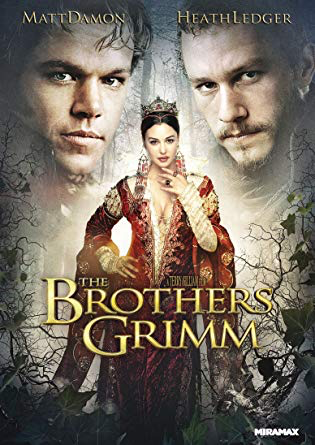
The Utah ‘hate crime’ law as of 2018 is as follows –
76-3-203.3. Penalty for hate crimes — Civil rights violation.
As used in this section
- ‘’Primary offense’’ means those offenses provided in Subsection (4)
- (a) A person who commits any primary offense with the intent to intimidate or terrorize another person or with reason to believe that his action would intimidate or terrorize that person is subject to Subsection (2)(b)
(b) (i) A class C misdemeanor primary offense is a class B misdemeanor.
(ii) a class B misdemeanor primary offense is a class A. misdemeanor. [i]
A proposed change, in 2019, to the hate crimes law, is summarized as follows –
‘’allow prosecutors to seek a one-step increase for offenders convicted of a misdemeanor crime against a person or their property based on a belief or perception of the victim’s ancestry, disability, ethnicity, gender, gender identity, national origin, race, religion or sexual orientation. A class A misdemeanor, for example, could become a third-degree felony at the time of sentencing.’’[ii]

Bottom line it bumps a misdemeanor, from sentences of 90 days to a maximum of one year, to a felony, with 5 years to life. Three felonies (3 strikes) and a life sentence, and adds more categories on gender.
The Utah law of hate crimes defines ‘intimidate or terrorize’ is to ‘fear for his physical safety or damages the property.’ There is adequate, if not overwhelming precedent, to include intimidate injury to include fear for reputation, loss of respect, embarrassment stigmatism, and many other listed maladies.
See these examples of adjectives used in the past in gender litigation, describing the subjected injuries or fear. The briefs citations are given in case you want to look up even more adjectives.
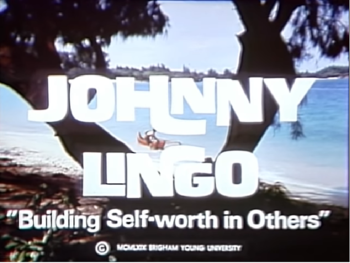
’ discrimination inflicts a grave and recurring injury’’ ABA amicus brief in BSA vs. Dale, 2000, citing Gay Rights Coalition of Georgetown Univ. Law Ctr. v. Georgetown Univ., 536 A.2d 1, 33 (D.C. 1987).
‘’ [E]conomic loss; time loss; physical and emotional stress; and in some cases severe emotional trauma, illness, homelessness or other irreparable harm resulting from the strain of employment controversies; relocation, search and moving difficulties; anxiety caused by lack of information, uncertainty, and resultant planning difficulty; career, education, family and social disruption; and adjustment problems . . . ‘’ ABA amicus brief in BSA vs. Dale, 2000, citing N.J. Stat. Ann. § 10:5-3 (West 1999).
‘’ serious and perhaps irreparable harm’’ ABA amicus brief in BSA vs. Dale, 2000.
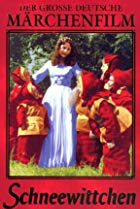
‘’lose the opportunity to develop the kinds of skills that are conveyed as a *** experience, but also are unable to participate with their peers in what for most communities in this country is an important rite of passage.’’ ABA amicus brief in BSA vs. Dale. 2000.
‘’perceptions of inequality *** high turnover, loss of talented employees, litigation, and bad publicity’’ Amicus brief of 379 employers, Obergefell vs. Hodges Ohio Department of Health, 2015.
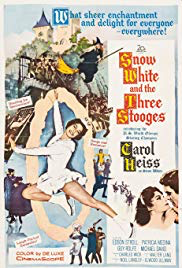
’ ‘den[y] or reduce[] benefits allowed to families upon the loss of a spouse and parent, benefits that are an integral part of family security’”) (quoting Windsor, 133 S. Ct. at 2695).’’ Amicus brief of 379 employers, Obergefell vs. Hodges Ohio Department of Health, 2015.
‘’less respected than others,’’ Amicus brief of 379 employers, Obergefell vs. Hodges Ohio Department of Health, 2015.

‘’lessen the financial inequality placed on employees, those workarounds impose additional and unnecessary business expense, *** combined burden of administrative costs and tax consequences *** employers are still expected to impute income spent on benefits *** not “worthy of dignity *** marginalized because of their financial status’’. Amicus brief of 379 employers, Obergefell vs. Hodges Ohio Department of Health, 2015.
‘’distress (e.g., a painful symptom) or disability (i.e., impairment in one or more important areas of functioning) or with a significantly increased risk of suffering death, pain, disability, or an important loss of freedom.” Am. Psychiatric Ass’n Diagnostic and statiscal Manual of Mental Disorders, 4th ed. cited in Amicus brief Marriage Cases, American Psychological Association et al, California, 2007. P.8.
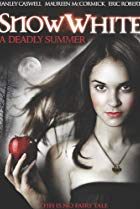
‘’extensive losses in their personal and social networks *** death of close friends and acquaintances; bereavement related to multiple losses is linked to higher levels of depressive symptoms. ‘’ See S. Folkman et al., Postbereavement Depressive Mood and Its Prebereavement Predictors in HIV+ and HIV- Gay Men, 70 J. Personality & Soc. Psychol. 336 (1996); J.L. Martin, Psychological Consequences of AIDS-Related Bereavement Among Gay Men, 56 J. Consulting & Clinical Psychol. 856 (1988). cited in Amicus brief Marriage Cases, American Psychological Association et al, California, 2007. P. 14.
‘’unfair and discriminatory’’ Resolution on Sexual Orientation and Marriage, 2004. cited in Amicus brief Marriage Cases, American Psychological Association et al, California, 2007. P. 2.
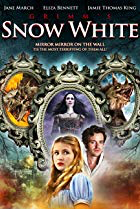
‘’RELATIONSHIPS *** INHERENTLY INFERIOR’’ Amicus brief of Family Equality Council, Obergefell vs Hodge, Court of Appeals 6th Circuit. P.
‘’the children *** are inferior to and less worthy of respect, recognition, and protection’’ Amicus brief of Family Equality Council, Obergefell vs Hodge, Court of Appeals 6th Circuit. P. 3.
‘’stigmatization, inferiority, and de-legitimization’’ ‘’ insecurity about their parents’ relationship, including the fear that “somebody is going to come and break up their family.”49 ‘’ “inherently different and potentially inferior.’’ Amicus brief of Family Equality Council, Obergefell vs Hodge, Court of Appeals 6th Circuit. P. 26.
‘’hated me *** disgusting and not worthy ***. It’s not a feeling I’d wish on my worst enemy’’, ‘’ immoral, unnatural, and evil.’’ ‘’ fear and despair,’’ ‘’damaged’’ ‘’disengage’’. Amicus brief of Family Equality Council, Obergefell vs Hodge, Court of Appeals 6th Circuit. P. 36-38.
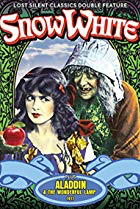
‘’Significant Emotional Costs ***humiliate[d] *** more difficult for the children to understand *** less worthy *** exhausting *** a pain that sits with me *** not ‘normal’ *** not as good’’ Amicus brief of Family Equality Council, Obergefell vs Hodge, Court of Appeals 6th Circuit. P. 24-26.
“inherently different and potentially inferior’’ *** ‘’ “inherently less deserving’’ *** ‘’ psychologically burdens’’, *** feel “ heated” *** ‘’ slap in the face’’ *** ‘’ little faith’’ ‘’ stigmatizing’’, ‘’ Harms’’, ‘’financial strain,’’ ‘’ multiple rounds of the college financial aid application process, an intensely stressful experience.‘’ ‘’ jeopardy.’’ ‘’ nervous,’’ ‘’ devastating emotional blow,’’ Amicus brief of Family Equality Council, Obergefell vs Hodge, Court of Appeals 6th Circuit. P. 26-30.
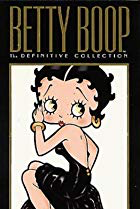
‘’depriving them of tangible governmental protections, alienating them from their communities, and creating insecurity, ‘’ ‘’ exacerbate feelings of hopelessness about the future and perpetual “differentness”, ‘’ undermines the self-worth’’, ‘’ impinges their development’’ ‘’ unequal.’’ ‘’ frustrating’’, Amicus brief of Family Equality Council, Obergefell vs Hodge, Court of Appeals 6th Circuit. P. 34-35
‘’Rejection. Isolation. Anger.’’ “hurt feelings,” ‘’ humiliating’’ [Headline reads] Briefs filed in Supreme Court case describe rejection and harm experienced by LGBTQ community. Deseret News.[iii] Citing . Brief of Colorado Civil Rights Commission, 2017.
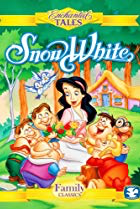
“archaic and overbroad assumptions,” “stereotypical notions,” “stigmatizing injury,” and the denial of “equal opportunities.” Roberts, 468 U.S. at 625 (explaining the harms of sex discrimination); see Obergefell, 135 S. Ct. at 2596 (recognizing the indignities suffered by gay people); see also, e.g., Conaway v. Deane, 932 A.2d 571, 609–11. Brief of Colorado Civil Rights Commission, 2017.
‘’ humiliation, frustration, and embarrassment’’ Heart of Atlanta Motel, 379 U.S. at 291–92 (Goldberg, J., concurring) (quoting S. Rep. No. 872, 88th Cong., 2d Sess., 16); see also id. at 250 (majority opinion) (explaining that “the fundamental object” of Title II is to serve personal dignity). Brief of Colorado Civil Rights Commission, 2017.
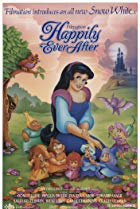
‘‘suicide, crime, and truancy’ ‘suicidal ideation and attempted suicide, higher truancy and drop out rates, substance abuse and running away from home,’’ Amicus brief 211 members of Congress Masterpiece Cakeshop vs. Colorado. 2017. p.20
‘’turmoil, strife, emotionalism, and all of the bad things’’ ‘’dangerous error, blind to human aspirations’’ Amicus brief 211 members of Congress, Masterpiece Cakeshop vs. Colorado. 2017. p. 8.
18 U.S.C. 249(a)(2) (hate crimes); ‘’ harassment’’, Amicus Brief DOJ Zarda vs Altitude Express 2017.
‘’prejudice, ignorance, or bigotry’’, ‘’ injury and indignity’’, animus is “fearsome,” stigmatizes, ‘’ morally and intellectually deficient.’’ ‘’ repression’’, ‘’ restrictions and disabilities”, Amicus brief Major Religious Organizations, Obergefell v. Hodges 2015.
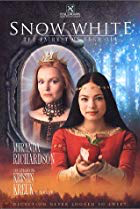
The attempt to expand categories of hate crimes continues unabated. [iv] After this proposed law is passed, and grows a beard, the test cases will begin.[v]
For instance, the Church of Jesus Christ of Latter-day Saints restricts baptism of minors in polygamous or same sex, same gender, marriages until the minor turns eighteen years of age, voting age, and denies an interest in pursuing the practice of the parents. [vi] ‘’Church’s doctrine that marriage is between a man and a woman. It also clarified that entering a same-sex marriage is considered “apostasy” and requires a Church disciplinary council. In addition, the handbook addresses “children of a parent living in a same-gender relationship.” It is not all that remote to consider the possibility that every Bishop, Stake or Mission President, is liable under a ‘hate crime’ law for causing one of the several adjectives above when confronted with this request to be baptized, as rejection would ‘’intimidate or terrorize’ so as to ‘fear for his physical safety.’
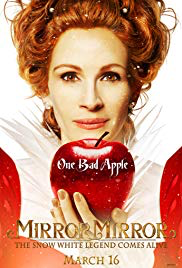
Just as the Cake bakery was in Colorado, or the Scout troop in Connecticut, or New Jersey, as cited in the amicus briefs. Or Employers in any of the dozens of EEOC complaints. Or at a minimum. buying a law suit to appeal to the Supreme Court, at a round cost of two million dollars and up, as in the Hobby Lobby case, or other cases cited.
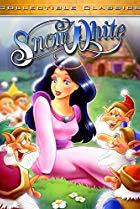
1995 Snow White.
In Massachusetts parents have no right to shield their children from pro-homosexual content in the public school curriculum.[vii] Would that be an issue under hate crime in Utah? Home schooling?
Wedding Cakes. Been there, done that in Colorado.
Boy Scouts. Maybe another round of law suits? Test the newly minted Utah law.
Pizza? This was an Indiana litigation.[viii]
Sky Diving. See Amicus brief.
Hiring. Did you know eye contact counts as discrimination?[ix]
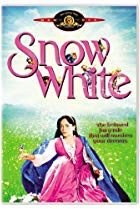
A while back, due to objections by Jewish groups against the baptism for the dead, the Family Search deleted hundreds of thousands of people from its data base. It was stigmatizing for the deceased, and probably a ‘hate crime’ as noted in other litigation. The headline reads, Mormon Church apologizes for Jewish baptisms for the dead – Volunteer’s access to database revoked after Holocaust survivor’s name is submitted.[x] ‘’Listing Jews as Christians *** aids and abets denial of the Holocaust.’’ ‘’We are outraged that such insensitive actions continue in the [Church of Jesus Christ] temples ***’’ ‘’mockery’’ ‘’unwanted’’ ‘’unwarranted’’ ‘’victims’’’ ’insensitive’’ ‘’outrage’’ Should Temple Presidencies be added to the list at risk?
The Federal EEOC home page notes – ‘’ We are looking for people who may have been affected by the unlawful discrimination alleged in these suits. Please read the list below for the name’’[xi] The government is trolling for the offended to come forward, and be a part of the solution or the problem, depending on your side.

There is even ‘lookism’ discrimination. According to Wikipedia.org ‘’ Lookism is discriminatory treatment toward people considered physically unattractive, mainly in the workplace but also in dating and other social settings. While not classified in the same way as racial, cultural, sexual discrimination, ” lookism” is widespread and affects how people are ?’’ “Lookism” refers to discrimination against people who are unattractive, or, to use a technical term, “aesthetically unfortunate”. On the basis of “lookist” prejudice, ugly people may be barred from certain jobs and paid less by their employers, in addition to being less likely to make friends and find a partner. Per BioEdge.
Bathrooms for boys and girls are in suit as cross over usage is desired by opposite sex. Every grocery manager can be at risk of hate crime suit, or not, if a boy wants to go to the girl’s room or vice versa, girl wanting to use men’s room, and a record is made . Every Mart, Cost less, Buffalo nickel, Depot, Max Book Store, and church with single use facilities are up for discrimination, or not. So also are high schools. grade schools, colleges, and county, city, and state office buildings. Banks, retailers, markets, clothiers, anyone with employees or customers take notice. A current case example is the Grimm v. Gloucester County School Board, in Virginia. fn 12. Amici brief from Apple and 58 other companies has these adjectives in the text “humiliating and painful,” “dignity, autonomy, and privacy,” “stigmatizing and degrading”, “which restricts access to public school restrooms for transgender youth.” “transgender restroom policies and are permitting employees and customers to use the restroom of the gender with which they identify.” “child reporting harm due to his school’s restroom policy.” “outed” “freak,” “extensive anguish”, “severe and persistent emotional, social, and physical harm”, “negatively impact their experience”, “stigmatized”, “different.”, “incredibly uncomfortable”, “isolating”, “anxious and depressed,” “harassment (78%), physical assault (35%), and sexual violence (12%)”, “miss school, had lower GPAs, and had higher levels of depression and lower levels of self-esteem”,”, “devalued”, “denigrate”, “unattractive”, “deploy their workforce”, ‘’ use restrooms according to their so-called “biological gender.’’ ‘’ tried to use the unisex restroom, *** more stigmatized.’’ The cases can’t be avoided even offering a unisex facility.
For
sports, separation by sex discrimination is already in the courts. ‘’ “discrimination on the basis of sex can no longer be justified by
reliance on ‘outdated images of women as peculiarly delicate and impressionable
creatures in need of protection from the rough and tumble’’ citing Brenden, 477
F.2d at 1296, quoting Seidenberg v McSorleys’ 317 F Supp. 593 S.D. N.Y.) in
Amici brief GLBTQ et al p. 21,
Gloucester County School Board vs. Grimm in the Supreme Court of the
U.S. March 2, 2017.[ii] Co-ed sports? Where strength, size and
speed matter, expect this to be a matter of litigation and controversy.
The conclusion is the legislature apparently
plans to prepare a solution which is looking for a problem, and criminalize
‘Mahana you ugly.’
[i] For the rest of the text of the Utah hate crime law, see Appendix A.
[ii] https://www.deseretnews.com/article/900052123/church-of-jesus-christ-of-latter-day-saints-will-not-oppose-hate-crimes-legislation-clarifies-previous-position-mormon-utah.html
[iii] https://www.deseretnews.com/article/900003818/briefs-filed-in-supreme-court-case-describe-rejection-and-harm-experienced-by-lgbtq-community.html
In this March 13, 2014, photo, Dave Mullins, left, and his husband Charlie Craig play cards and talk after a work day, at their home in Westminster, Colo. The couple filed a legal complaint with the Colorado Civil Rights Commission against a Denver-area baker who refused to make a wedding cake for the two men, based on his religious beliefs. The baker, Masterpiece Cakeshop owner Jack Phillips, is appealing a ruling by a judge in December 2013 which upheld the complaint, and orders the baker to serve gay couples despite his religious beliefs or face fines.
See Appendix C for rest of article.

[iv] The bill is H.R. 1592 See Appendix B.
On the Net: Congress: http://thomas.loc.gov/
[v] Boy Scouts’ ranks drop in year after policy change regarding openly …
https://www.deseretnews.com/article/765647614/Boy-Scouts-ranks-drop-after-year-of-policy-change.html
Feb 12, 2014 … That policy change, while lauded by gay-rights groups, angered … the Southern Baptist Convention expressed its disapproval and left it to individual … Already, one openly gay Scout who was denied his Eagle award due to …
[vi] https://www.lds.org/church/news/elder-christofferson-says-handbook-changes-regarding-same-sex-marriages-help-protect-children?lang=eng
[vii] February 23, 2007, Chief Judge Mark L. Wolf (U.S. District Court) see capwiz.com/legacylaw.
[viii] https://www.eater.com/2015/4/1/8325219/indiana-pizza-parlor-public-deny-service-lgbt-gay-law-discrimination
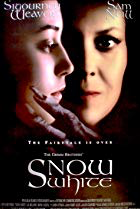
[ix] Can eye contact or weird looks count as discrimination? – Business
https://money.cnn.com/2018/09/05/pf/subtle-discrimination-workplace/index.html
Sep 5, 2018 – Loaded looks. Repeated glances. Too much eye contact, or not enough. Such small actions may seem insignificant to some, but can still create
[x] https://www.deseretnews.com/article/765550827/LDS-Church-apologizes-for-Jewish-baptisms-for-the-dead.html Feb. 14, 2012.
The Church of Jesus Christ of Latter-day Saints has long asked members to engage in baptisms for the dead only for direct relatives. More specifically, according to agreements reached between LDS and Jewish officials as recently as 2010, the [Church of Jesus Christ] has promised that the names of Holocaust victims would not be submitted for baptism for the dead in any of the church’s temples unless those names belong to direct ancestors of those submitting the names.
“We are outraged that such insensitive actions continue in the [The Church of Jesus Christ] temples,” said Rabbi Abraham Cooper, associate dean of the Simon Wiesenthal Center and one of the Jewish representatives who participated in the [The Church of Jesus Christ] /Jewish discussions of the matter. “Such actions make a mockery of the many meetings with the top leadership of the [The Church of Jesus Christ] church dating back to 1995 that focused on the unwanted and unwarranted posthumous baptisms of Jewish victims of the Nazi Holocaust.”
[xi] https://www.eeoc.gov/ [28 January 2019].
Appendix A
| Index | Utah Code |
| Title 76 | Utah Criminal Code |
| Chapter 3 | Punishments |
| Part 2 | Sentencing |
| Section 203.3 | Penalty for hate crimes — Civil rights violation. |
[continued]
| (3) | “Intimidate or terrorize” means an act which causes the person to fear for his physical safety or damages the property of that person or another. The act must be accompanied with the intent to cause or has the effect of causing a person to reasonably fear to freely exercise or enjoy any right secured by the Constitution or laws of the state or by the Constitution or laws of the United States. (4) Primary offenses referred to in Subsection (1) are the misdemeanor offenses for: (a) assault and related offenses under Sections 76-5-102, 76-5-102.4, 76-5-106, 76-5-107, and 76-5-108; (b) any misdemeanor property destruction offense under Sections 76-6-102 and 76-6-104, and Subsection 76-6-106(2)(b); (c) any criminal trespass offense under Sections 76-6-204 and 76-6-206; (d) any misdemeanor theft offense under Section 76-6-412; (e) any offense of obstructing government operations under Sections 76-8-301, 76-8-302, 76-8-304, 76-8-305, 76-8-306, 76-8-307, 76-8-308, and 76-8-313; (f) any offense of interfering or intending to interfere with activities of colleges and universities under Title 76, Chapter 8, Part 7, Colleges and Universities; (g) any misdemeanor offense against public order and decency as defined in Title 76, Chapter 9, Part 1, Breaches of the Peace and Related Offenses; (h) any telephone abuse offense under Title 76, Chapter 9, Part 2, Telephone Abuse; (i) any cruelty to animals offense under Section 76-9-301; and (j) any weapons offense under Section 76-10-506. (5) This section does not affect or limit any individual’s constitutional right to the lawful expression of free speech or other recognized rights secured by the Constitution or laws of the state or by the Constitution or laws of the United States. Amended by Chapter 229, 2007 General Session |
Appendix B
White House opposes hate crime bill
The bill is H.R. 1592 See Appendix B.
On the Net: Congress: http://thomas.loc.gov/
White House opposes hate crime bill By JIM ABRAMS, Associated Press Writer
The White House issued a veto threat Thursday against legislation that would expand federal hate crime law to include attacks motivated by the victims’
gender or sexual orientation.
The hate crimes bill, with strong Democratic backing *** undermines freedom of speech, religious expression and equal protection under the law.
The White House, *** said state and local criminal laws already
provide penalties for the crimes defined by the bill and “there has been no
persuasive demonstration of any need to federalize such a potentially large
range of violent crime enforcement.”
***
The White House also noted that the bill would leave out other classes such as the elderly, members of the military or police officers. Hate crimes under current federal law apply to acts of violence against individuals on the basis of race, religion, color, or national original. Federal prosecutors have jurisdiction only if the victim is engaged in a specific federally protected activity such as enrolling in school, voting or traveling between states.
The House bill would extend the hate crimes category to include sexual
orientation, gender, gender identity or disability. ***
Those using guns to commit crimes defined under the bill would face prison terms of up to 10 years. Crimes involving kidnapping or sexual assault or resulting in death could bring life terms. The Judiciary Committee cited FBI figures that there *** 7,163 in 1995. It said that racially motivated bias accounted for 55 percent of those incidents, religious bias for 17 percent, sexual orientation bias for 14 percent and ethnicity bias for 14 percent.
Copyright © 2007 The Associated Press.
Appendix C. _
SALT LAKE CITY — The stories begin with an unremarkable interaction.
“I was checking into my hotel.”
“I was at the doctor’s office.”
“I was ordering flowers.”
Matt Adler’s story starts with a Lyft ride. It was about a year ago in suburban Maryland, and his driver wanted to chat.
“He told me I was a bad Jew for using a car on (the Sabbath) and then noticed the pride rainbow on my yarmulke,” Adler said.
Within minutes, Adler stood alone on the side of the road, his driver’s homophobic slurs ringing in his ears.
“He (had) swerved to the side of the road and kicked me out,” he said. “I had to walk the rest of the way.”
Joseph Tolman
Amicus briefs in support of Colorado and the gay couple
Rejection. Isolation. Anger. Those are the endings to stories scattered throughout the 45 amicus, or friend-of-the-court, briefs filed with the U.S. Supreme Court in support of the gay couple in the Masterpiece Cakeshop case. The submissions come after 46 briefs were filed in support of the rights of Christian baker Jack Phillips.
***
Joseph Tolman
Amicus briefs in support of Phillips
Those who side with the Christian baker, Jack Phillips, argue that First Amendment protections override “hurt feelings,” noted Chad Flanders, a law professor at Saint Louis University. Religious objectors to same-sex marriage can live their beliefs and those they can’t serve can go to other bakeries, take a different cab or stay at a gay-friendly hotel just down the street.***
More than a cake
Charlie Craig and David Mullins were in the midst of wedding planning when they visited Masterpiece Cakeshop in July 2012. They asked about their wedding cake options and were told they didn’t have any. Phillips, the store’s owner, said he could sell them other baked goods but his religious convictions kept him from taking part in a same-sex wedding.
Joseph Tolman
Masterpiece Cakeshop at-a-glance
“What should have been a happy occasion became a humiliating one,” explains the brief outlining the couple’s arguments, which was prepared by the American Civil Liberties Union.
The Colorado Anti-Discrimination Act prohibits discrimination based on sexual orientation in stores, restaurants and other places of public accommodation, so Craig and Mullins filed a complaint with the state. An administrative law judge, the Colorado Civil Rights Commission and then the state’s court of appeals ruled that Phillips had engaged in illegal discrimination, forcing him to appeal to the Supreme Court. Last June, justices agreed to hear the case.
In September, 46 briefs joined by hundreds of religious organizations, legal groups and scholars outlined the baker’s case. These religious liberty allies described cake decoration as a form of protected expression, wedding cakes as religious symbols and Colorado’s anti-discrimination law as an imposition on religious freedom, as the Deseret News reported.
Now, responses are in from the opposing side in the case: the faith leaders, civil rights activists, legal experts and business owners who say Colorado — and policymakers in general — are right to force religious store owners to serve everyone.
***
Both sides agree on one issue: the case is about much more than baked goods. Briefs siding with the baker describe the conflict as a symbol of the many ways people of faith are forced to compromise their beliefs to participate in the marketplace.
“This case is about much more than a wedding cake. It is about the rightful place of ***
Rejecting exemptions
Public accommodations laws originated more than 150 years ago, gradually broadening in scope as societal expectations changed, according to a brief from experts on these protections.
Today, those state and local laws mandate equal treatment for people of color, members of minority faiths and other protected classes. Twenty-one states, including Colorado, forbid sexual-orientation discrimination.
Utah’s public accommodations law prohibits discrimination based on race, color, sex, religion, ancestry or national origin. It was not expanded to include sexual orientation or gender identity when legislators passed protections based on those traits in housing and employment in March 2015.
***
Since Phillips designs and sells wedding cakes to heterosexual couples, he’s obligated by Colorado’s public accommodations act to do the same for homosexual couples, the Colorado Civil Rights Commission argued.
“If a retail bakery will offer a white, three-tiered cake to one customer, it has no constitutional right to refuse to sell the same cake to the next customer because he happens to be African-American, Jewish or gay,” its brief reads.
The baker’s lawyers from the Alliance Defending Freedom and others who filed briefs on his behalf do not dispute this interpretation of the law. However, they say the First Amendment justifies an exemption for business owners providing expressive services like cake decorating, who might feel forced to choose between condoning a same-sex marriage by participating in it or going out of business.
“This case is about assisting with a wedding. It does not involve any alleged right to generally refuse service to same-sex couples, or to act on conscience in purely commercial contexts. It involves a right to act on conscience in a religious context — in connection with a wedding,” argues a brief for the baker from eight religious organizations, including The Church of Jesus Christ of Latter-day Saints.
In other words, Phillips’ supporters say there’s a difference between discriminating against an LGBT person and avoiding same-sex weddings. But that claim is rejected repeatedly — and in a personal, emotional way — in briefs filed for Colorado and the gay couple.
“If what you say is, ‘I object to your wedding,’ you’re really saying, ‘I object to you,'” said Rachel Tiven, CEO of Lambda Legal Defense and Education Fund.
Balancing burdens
As Flanders noted, some religious freedom advocates see Tiven’s argument as an overstatement.
“For some, the common sense resolution is to buy a cake somewhere else,” he said.
While acknowledging the inconvenience of being asked to go to another store, those supporting the baker see no lasting harm if a gay couple can easily obtain a cake elsewhere.
“The balance of hardships here tilts heavily in favor of petitioner. The same-sex couple who obtains a cake from another baker still gets to live their own lives by their own values, but (Phillips) does not. He must repeatedly violate his conscience or permanently abandon his occupation,” reads the brief from the eight religious organizations in favor of the baker.
One of the challenges of this case is that choosing a wedding cake is not a life-or-death matter, Tiven said. It’s tempting to believe that going to another bakery is not a big deal.
Wedding-related services are “benign and frivolous,” she said. “But the real-life circumstances that people call us about are not.”
Lambda Legal’s brief, as well as filings from GLBTQ Legal Advocates & Defenders, the National LGBTQ Task Force and other advocacy groups, outline dozens of situations in which gay, lesbian and transgender Americans face discrimination. They describe rejection at fertility centers and funeral homes, tracing the pain that follows sexual minorities from birth until death.
Jack Zawadski scrambled to find help after the death of his husband, Robert Huskey, in a Picayune, Mississippi, nursing home in May 2016. Arrangements had been made before his death at the only local funeral home offering cremation, but the director refused the body after learning about their marriage.
“It was one of the worst days of (Zawadski’s) life,” and the funeral home was making it worse, Tiven said. There were no other cremation services available in the county.
Lambda Legal currently represents Zawadski in a breach-of-contract suit against the funeral home.
Anti-discrimination laws protect the mental health of LGBT individuals, said Mary Bonauto, civil rights project director at GLBTQ Legal Advocates & Defenders. Without them, gays and lesbians would risk censure at every new store or restaurant they tried.
“If every time you walk into a shop, you risk being intimidated, that’s destructive. That’s the kind of harm we want to end in this society,” she said.
A ruling or a compromise
Although a Supreme Court case involving a Christian baker, gay couple and wedding cake is novel, opponents of religiously based service refusals say the case treads on familiar ground. They compare the Masterpiece Cakeshop debate to Newman v. Piggie Park, a case that pitted a religious barbecue restaurant owner against African-American customers in 1968.
***
Some faith groups and religious leaders take a similar view, asserting that accommodating opposition to same-sex marriage could easily lead to increased discrimination against minority faiths, as the Deseret News reported last week.
“Public accommodations laws like Colorado’s generally promote religious liberty, by protecting individuals from discrimination on account of their religion,” argues the brief joined by the General Synod of the United Church of Christ, the Baptist Joint Committee for Religious Liberty, the presiding bishop of the Episcopal Church, the Evangelical Lutheran Church in America and Chicago Theological Seminary.
Those who support accommodations for business owners like Phillips say that compromise is necessary in the wake of a major cultural shift like the legalization of same-sex marriage. They point to the Supreme Court’s marriage ruling, which called for respect for all religious perspectives.
“As the court recognized in Obergefell, the problem is not the existence of a multiplicity of good faith views about marriage, but rather the enshrining of a single view into law which can be used to demean, stigmatize and exclude those who do not accept it,” read the brief filed for the baker by Becket Law.
In other recent, high-profile religious freedom cases, compromise was reached. After the Supreme Court ruled in the 2014 Hobby Lobby case that closely held, for-profit corporations couldn’t be forced to pay for contraception coverage if it violated owners’ religious beliefs, employees were able to access birth control directly from their insurer.
“That was an odd case. There was this way out (of the conflict) where insurance companies could pay,” Flanders said. “Here it’s harder.”
***
BRIEF FOR THE STATES OF NEW YORK, WASHINGTON, CALIFORNIA, CONNECTICUT, DELAWARE, HAWAI‘I, ILLINOIS, IOWA, MAINE, MARYLAND, MASSACHUSETTS, NEW MEXICO, OREGON, PENNSYLVANIA, RHODE ISLAND, VERMONT, AND VIRGINIA, AND THE DISTRICT OF COLUMBIA, AS AMICI CURIAE
IN SUPPORT OF APPELLANT AND IN SUPPORT OF REVERSAL
Also
BRIEF FOR AMICI CURIAE APPLE, IBM CORPORATION, MICROSOFT AND 56 OTHER COMPANIES IN SUPPORT OF PLAINTIFF-APPELLANT Grimm v. Gloucester County School Board

Disclaimer: The author of each article published on this web site owns his or her own words. The opinions, beliefs and viewpoints expressed by the various authors and forum participants on this site do not necessarily reflect the opinions, beliefs and viewpoints of U3tah Standard News or official policies of the USN and may actually reflect positions that USN actively opposes. No claim in public domain or fair use. © Edmunds Tucker. UTopiAH are trade marks of the author. Utopia was written in 1515 by Sir Thomas More, Chancellor of England.
Utah Standard News depends on the support of readers like you.
Good Journalism requires time, expertise, passion and money. We know you appreciate the coverage here. Please help us to continue as an alternative news website by becoming a subscriber or making a donation. To learn more about our subscription options or make a donation, click here.
To Advertise on UtahStandardNews.com, please contact us at: ed@utahstandardnews.com.


Comments - No Responses to “Utah Legislature’s Solution looking for a Problem. Mirror Mirror, Snow White, Johnny Lingo, Grimm fairy tales.”
Sure is empty down here...